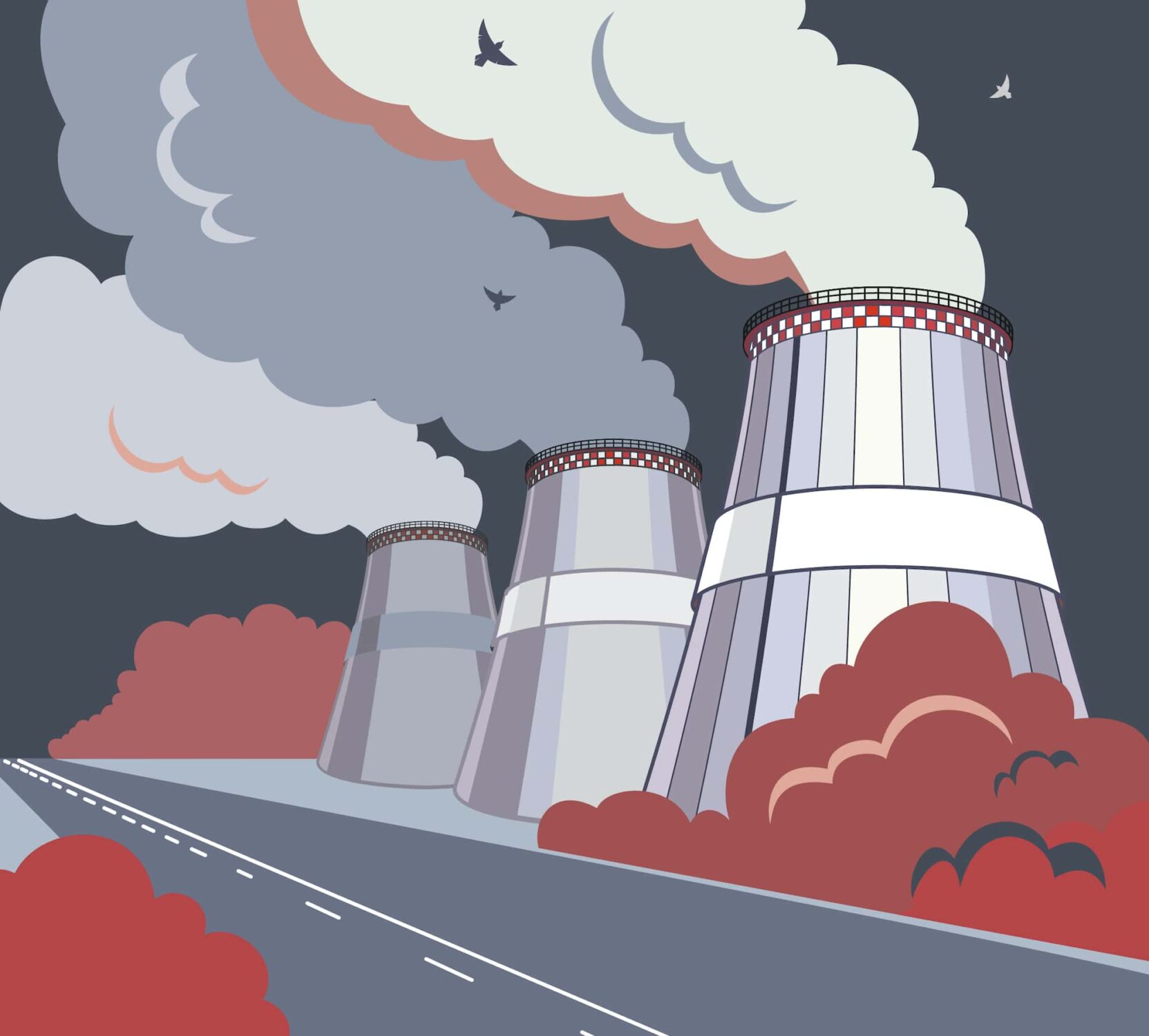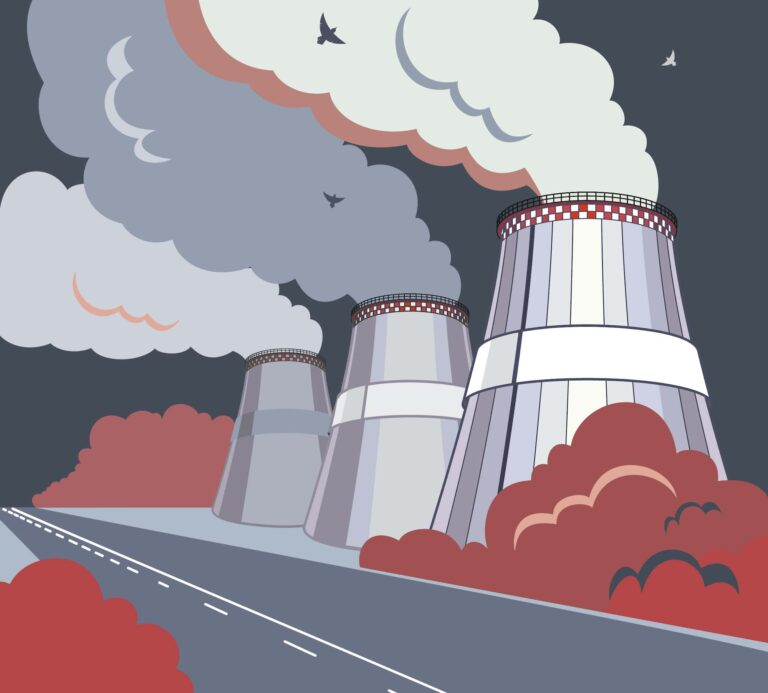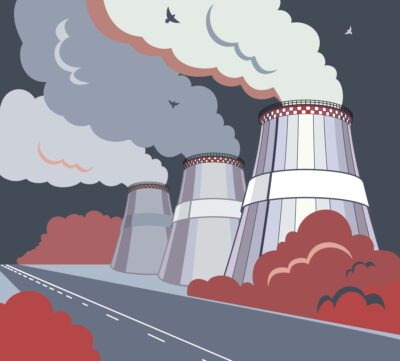The Czechs are usually ranked among the most popular nations in Poland. A poll conducted in March 2021 found that only 6 % of Poles view Czechs unfavourably. Nonetheless, today the Polish state media portrays the Czech Republic as a foe that, for dubious reasons, is set on ruining the Polish energy sector. Currently, it is the Turów lignite mine on the Polish side of the border that is behind the friction between the two countries. Does this case mirror structural problems in Czech–Polish relations, and what can be done to restore mutually favourable cooperation?
by Vít Dostál, AMO
The Czech Republic and Poland enjoyed a prolonged period of warm relations in the 1990s. Both countries helped each other out in their quests to join NATO in 1999 and the EU in 2004. The post-1989 political elites had known each other since the 1970s, when democratic opposition and dissent movements from both sides of the border began to meet and cooperate. In the 1990s relations between these two countries were trouble-free and centred on Euro-Atlantic integration and economic transformation.
EU membership boosted cooperation even more. In 2006–10, there was a boom in Czech–Polish relations, which took place on three levels. First, external circumstances led to greater interest in mutual relations. Issues such as negotiations of EU treaty reform, the US missile shield initiative in Central Europe, preparations for the Czech Presidency of the Council of the EU in 2009, and energy security brought Prague and Warsaw to the same table. Second, at that time the Czech and Polish centre-right governments were politically close to each other. This was an important factor in efforts to develop the eastern dimension of the European Neighbourhood Policy. Third, new tools emerged for developing Czech–Polish relations at the non-governmental and social levels, thanks to the establishment of the Czech–Polish Forum, a platform for civic cooperation; both countries’ joining the Schengen Area; and the allocation of greater resources to cross-border cooperation.
The 2011 Czech foreign policy strategy document referred to Poland as a “strategic” partner for the first time. However, over the following decade bilateral relations deteriorated. First, there was no joint proactive agenda on the EU and NATO level. In this period, Warsaw carried out more assertive foreign policy under both the Civic Platform and Law and Justice governments. Such active policy in the international arena was incompatible with the more restrained Czech approach that was implemented after the Czechs presided over the EU Council.
In the past decade both countries have found common ground only on a few issues, most related to defying Brussels. Prague and Warsaw stood hand in hand in rejecting the relocation of asylum seekers and the EU’s asylum and migration reform. Both countries have also opposed Brussels’s ambitious climate and decarbonization targets.
Despite this worsening, bilateral relations developed positively in the first half of the 2010s. A crucial step in this regard was the launch of intergovernmental consultations, which made it possible to discuss many sectoral issues. The so-called 2+2 format – consultations between the deputy foreign ministers and deputy defence ministers – was implemented in 2011. Cross-border cooperation flourished, and thanks to the European football championship in 2012, co-hosted by Poland, Czechs finally started to discover their neighbouring country as a tourist destination.
Despite this renewed closeness, several challenging issues appeared. In 2012–13 a drawn-out dispute between the two countries occurred, when the Czechs accused the Poles of exporting inferior food products. Both sides also blamed each other for air pollution in the Silesian borderlands. Plans for developing the Turów mine and its environmental implications started to be debated at the intergovernmental level. Other long-unresolved issues popped up again, such as the territorial dept dispute between Prague and Warsaw. The Czechs essentially “owe” Poland land, but the government has been unable to decide what territory to cede.
These problematic issues began consuming a growing amount of time and energy in bilateral relations and replaced the previous proactive multilateral agenda. This has escalated in the past two years. The Turów case is only a symptom of underinvestment in Czech–Polish relations and a result of the estrangement of the political and bureaucratic elites from both countries. The current state of affairs also reflects how polarized the Czechs are when it comes to viewing two of their major Central European partners: Hungary and Poland.
Not only Turów
Czech–Polish relations have deteriorated significantly in recent months. The main cause is the dispute over coal mining in Turów, Poland, which sits directly on the Czech border. The situation, however, cannot be attributed to just this environmental row. The absence of a shared proactive agenda in European politics, the deepening of problems with the rule of law in Poland, and the visible disillusionment with this trend on the part of the Czech public and political elites do not benefit relations either.
The Czech Republic repeatedly warned Poland about the serious insufficiencies contained in the Polish environmental impact assessment of the Turów mine expansion. Despite the Czechs’ diplomatic efforts, Warsaw decided to continue mining, and Prague responded with a lawsuit.
The Court of Justice of the EU handed down a preliminary ruling stating that there should be an immediate cessation of mining pending a decision in due process. But Poland did not follow the court’s orders and was slapped with a 500,000 euro daily fine.
It took the preliminary ruling of the Court of Justice to bring the Poles to the negotiating table. Talks kicked off at the end of June and received considerable political attention on both sides. The situation, however, has generated considerable tension, especially in Poland. The mine and the power plant connected to it play an important role in the Polish energy sector. Unfortunately, the government-controlled media in Poland has deliberately framed the dispute as orchestrated by the Germans, connected to the upcoming Czech elections, and basically an attack on Poland. The essence of the problem itself was concealed, and misleading information and conspiracy theories were spread around it.
After several rounds of negotiations, talks were suspended right when it seemed that an agreement was about to be reached. This sparked a blame game between Polish and Czech officials.
But bilateral relations have been complicated by more than just the Turów case. The deepening conflict between Poland and European institutions concerning the rule of law and Poland’s growingly repressive approach to the rights of women and sexual minorities have also had a negative effect. At the end of 2020, Poland, together with Hungary, blocked negotiations on the Multiannual Financial Framework and the Next Generation Fund as the use of these funds is conditional on respecting the rule of law. This fact, along with the amendment to the Polish abortion law, met with a negative response among parts of the Czech political elite, the media, and civil society. The friction was further exacerbated when the Polish Embassy in Prague warned in a letter released to Czech media that a proposed Czech legal amendment would enable foreign women (including Poles) to have abortions more easily in the Czech Republic.
Is there a way out?
Czech–Polish relations need to be revitalized, and rigorous political work will need to be performed. Following the upcoming autumn parliamentary elections in the Czech Republic, joint government consultations should take place as widely as possible. Bilateral communication was disrupted by the pandemic, and negotiations in this traditional format have not taken place since July 2019. These renewed meetings will allow Czech ministers to inform their Polish counterparts about the priorities of the Czech Presidency of the Council of the EU, which is planned for the second half of 2022. Finally, the 2 + 2 format should be revived, as it offers a fairly broad platform for negotiation (e.g., on bilateral military and security cooperation, implementing the NATO 2030 strategy, relations with the new US administration, and the transfer of Czech experience with hostile Chinese influence).
Resolving the Turów dispute will be an essential step in improving relations. The Czech side must insist on monitoring the impact of mining and compensation for the affected region. On the other hand, given the importance of the mine and the power plant for the Polish energy sector, it cannot be expected that mining will be permanently stopped. This should not be the Czechs’ goal, as the negative impact on mutual relations would be enormous.
The Turów case is also a reminder that some issues with Poland are difficult to resolve successfully without gaining the attention of Jarosław Kaczyński. He remains the most powerful politician in the country as the chairman of the main governing party. Like it or not, to keep relations stable, Czech officials must reach out directly to Kaczyński.
These steps could help reverse the current slump in relations between Poland and the Czech Republic. It won’t be easy, and it will require major political and diplomatic effort. Yet, as 30 years of good relations between neighbours are at stake, it is worth trying.
Vít Dostál is executive director of the Association for International Affairs (AMO), a Prague-based think-tank.
The views and opinions expressed on our blog are those of the authors, representing a wide range of viewpoints, and do not necessarily reflect the position of VSquare or our affiliated organisations.







